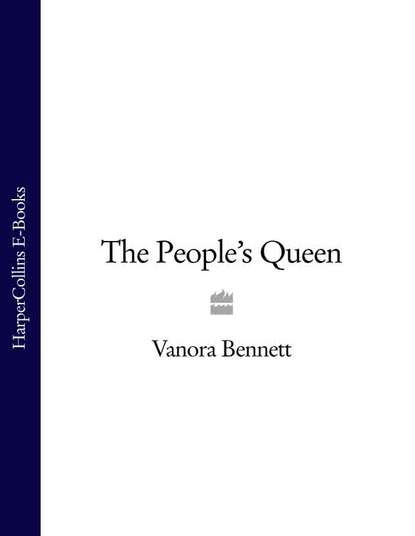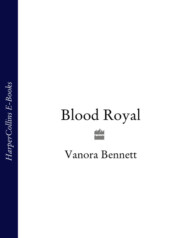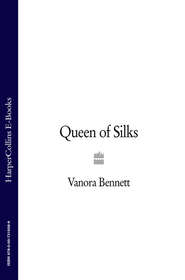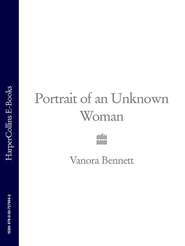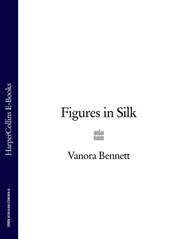По всем вопросам обращайтесь на: info@litportal.ru
(©) 2003-2024.
✖
The People’s Queen
Настройки чтения
Размер шрифта
Высота строк
Поля
THIRTY-EIGHT (#litres_trial_promo)
THIRTY-NINE (#litres_trial_promo)
FORTY (#litres_trial_promo)
FORTY-ONE (#litres_trial_promo)
EPILOGUE A World Begins (#litres_trial_promo)
HISTORICAL NOTE (#litres_trial_promo)
Acknowledgements (#litres_trial_promo)
About the Author (#litres_trial_promo)
Also by Vanora Bennett (#litres_trial_promo)
Copyright (#litres_trial_promo)
About the Publisher (#litres_trial_promo)
FORTUNE’S WHEEL (#ulink_a98d08ae-67d8-50c5-ac45-10bd363b0fc1)
The picture on the left shows the capricious goddess Fortune, as she was often displayed in the rose window of medieval English churches, teasing her victims with the hope of lasting wealth and power.
The greedy, feverish people rising up Fortune’s ever-turning wheel, on the left, are gloating, regnabo, boastful Latin for ‘I shall reign’.
The person at the top, who has achieved every ambition, crows, regno, or ‘I reign’.
The terrified people on the right of the wheel, going down, are looking back at their moment of glory, wailing, regnavi, or ‘I used to reign’.
And the one falling off at the bottom whimpers, sum sine regno; ‘I am without a kingdom’ or ‘I have been left with nothing’.
The message understood by every congregation – that pride comes before a fall – took on new significance after the Black Death. This devastating outbreak of plague killed off one-third of the people of Europe in the middle of the 14th century, when my novel begins. The catastrophe ended an era of belief that men were born to fixed and unchangeable positions in society. With survivors everywhere grabbing for a share of the spoils left by the departed, an ambitious few started rushing towards high estate with a speed and determination never seen before. Envious onlookers could only hope that these winners would soon fall from the pinnacle of power, as suddenly and dramatically as they had risen.
PROLOGUE A World Ends (#ulink_6acd9fb4-c0c4-55ee-847a-03ae3419f48d)
Footsteps.
Kate stirred. She was lying on the floor, on her side. She must have managed to fall asleep. She was stiff. Her hip was digging into the packed earth. It was hot already, and there was a burning strip of light coming through the shutters. It took her a moment to understand what she was hearing.
Someone sauntering along the lane outside, with a cheerful, confident, light stride. Whistling.
Kate scrambled heavily to her feet. With the baby inside her kicking and punching, full of energy and raunch, keen to be out and breathing God’s air, and with her own heart pounding like the millstream paddles in the spring melt, she rushed to the doorway.
There’d been nearly sixty people living in Great Henney just the other day. They’d all gone. Or that’s how it seemed. She’d heard no other footsteps for at least a day, sniffed no smoke on the air, no cooking of broth or eggs last evening. She’d thought she was alone, with just the panicky lowing of lost cows, and the anxious clip of dogs’ paws, and the stink. So who could be striding about like that now, whistling the kind of jaunty dance tune you could kick your heels up to?
It was only when she was almost out in the daylight that she stopped. It was too easy to hope. She shouldn’t be rash. This person might mean danger.
She dropped to her knees, below a passer-by’s eye level, and peered cautiously through leaves and branches. She felt as wild and scared down there as a woodland beast. It was only the hope she couldn’t quite suppress that seemed human.
Kate could see brightness in the hedgerow. The midsummer flowers were still glowingly alive, the birds singing, the insects buzzing. There were stripes of corn still yellowing in the field, greener stripes of rye and barley, and the fronds of beans.
But as soon as she was close enough to the doorway to see all the things that seemed so normal, she was also close enough to get a noseful of the stink. It seemed worse every time, but what could you expect? It was a hot day. Not that she could actually see any human bodies from here. But they must be there. What she could see were the corpses of the sheep on the common in front of the field. All dead, hundreds of them. They’d started dropping at the same time as the people. There were flies rising drunkenly in the grass, clouds of flies, buzzing from one still mound to the next.
She and Dad had buried Tom three days ago, and Mum, before Dad went off on the penitents’ procession. An hour, he said. But he didn’t come back. And the baby would come any day now. Maybe tonight.
But now, in bright daylight, there was this woman, a stranger, who didn’t seem to have a care in the world, coming up the lane towards her. Despite herself, despite the possible danger, Kate craned forward.
The stranger was a sharp-faced, tall thing, with pale freckly skin, and ginger hair peeping out under her kerchief, and skinny limbs. She was maybe thirty. The woman didn’t bother to pretend she couldn’t see Kate staring at her. She just stared back down with frank interest, then nodded, and said, quite matter-of-factly, quite cheerfully, ‘That baby’s not already started coming, has it?’
The words were so normal that Kate suddenly felt ashamed to be down on her knees, like a wild beast.
Blushing furiously, she shook her head and started to raise herself from the floor, grateful for the warm splintery ordinariness of the door frame under her hands, hot with relief that she wasn’t alone any more.
‘Backache,’ the woman said, still assessing her with that not unfriendly look. ‘Terrible, that can be, when you’re as far gone as you are. Gah. Tell me about it.’ She sniffed and stuck out a hand; she took Kate’s arm and hauled the girl the last few inches till they were both standing, not too close, one on each side of the threshold. ‘Still,’ the woman went on. ‘One thing.’ She eyed Kate’s bump, and Kate thought there was something almost hungry in her look. ‘It’s not all just dying, whatever they might say. God destroying the race of Adam, my arse. Here’s one bit of new life coming in, anyway. So. Not all bad, is it?’
Tremulously, Kate laughed. The woman nodded approvingly. She took a step forward and patted the bump. ‘On your own out here, are you?’ the stranger said, not unkindly.
For just a moment, Kate had another faint shiver of worry at letting an incomer know just how vulnerable she was. Then she thought: I don’t care if she does know. She can see I’m on my own whatever I say. She’s got a kind way with her. I need to keep her here.
The woman wasn’t from round these parts, that was for sure. Not with that sharp quick way of talking, words all bitten into each other. But she was another living human. ‘Tom’s dead,’ Kate blurted, as trustingly as the girl she’d been before she’d married him, on her fourteenth birthday, six months ago, before the pregnancy showed. ‘Mum…we buried them. But now Dad…he went on the procession. With Sir John. The priest. He was only supposed to be gone an hour or two.’
She was surprised how calm and level her own voice sounded. She knew Dad was dead too, really. She was still scared, but it was ordinary fear now – the watchfulness of two foxes meeting in the forest. She was surprised how grateful she was to this woman just for being here with her.
The woman gave her a bright little look, and shook her head. ‘Tom was your man, was he?’ she asked, still shaking it, as if the news was a surprise and a sorrow, though one borne lightly. ‘And you’d be who, then…?’ She lifted an enquiring eyebrow.
‘Kate,’ Kate stammered. ‘They call me Young Kate.’ She’d never had to explain herself. She’d never met someone who didn’t already know her.
‘Well, wouldn’t you know it,’ the woman said. She put down her bundle. There wasn’t much in it, maybe a change of linen and a piece of bread, it was that light. She was still shaking her head, as if she couldn’t believe something. ‘My Tom’s little wife,’ she said. Then, to Kate’s shock, she leaned forward and pinched Kate’s cheek. ‘A right little beauty he got himself and all,’ she added with a sudden, toothy grin.
Kate stepped back, touching her cheek. That jocular pinch had been quite hard. She didn’t know if she liked the growing brightness in the woman’s voice. Faintly, she said, ‘Your Tom?’
‘Cousin,’ the woman offered. Nothing more. She glanced behind Kate, behind the cottage, behind the open-sided barn where the tiles were drying, to the kiln. A knowing sort of look. In her flat quick voice, she added, ‘You must have heard of us. My dad’s the one used to take the tiles from the kiln there to market. Way back, we’re talking now. Must be twenty years ago.’ She nodded again. Her story was taking shape. She was gaining fluency. ‘Married a London girl, my dad, didn’t he? My mum, that was. Stayed on with her family. Liked the hustle and bustle of town life. Always talked about home though. Brought me here once, when I was a kid. Your Tom and me, thick as thieves we were, back then. Climbing trees, swimming in the river’ – she gestured at the landscape – ‘smoking out bees for honey. Nicking the broken bits of tiles for skimming stones. A proper little terror he was in those days. Oh, the things he taught me.’ She went back to shaking her head, with that tough smile pinned on her face and her bright little eyes fixed very hard on Kate’s.
Part of Kate knew there was something wrong. The more she thought about it, the more seemed wrong. Tom had never mentioned having blood in London that Kate remembered. And they’d surely never been kids at the same time, these two. Tom must have been a good ten years younger. Mustn’t he? Plus which, most importantly, it wasn’t ever Tom’s dad, who’d died years ago, who’d worked out what you could do with the clay. The tiles were her dad’s business. So there must be a mistake. The woman must be mixing her up with someone else. Some other Essex village. Some other tilery. Some other Tom. But if she pointed that out the woman might go. And the baby was coming, and Kate’s back was aching. She told herself: He wasn’t a talker, Tom. Perhaps he just never had a chance to tell me about a family in London.
‘What’s your name?’ she said.
The woman only grinned wider. ‘Alice…Alison,’ she said, as if she hadn’t quite decided. ‘You just call me Aunty.’
Then Aunty put a bony arm around Kate’s shoulder and began walking her inside her home. ‘Come on, love,’ she said, strangely tender. ‘Let’s us get a fire going. I’m starving, and you need to feed that baby of yours, don’t you?’
The next morning, after the baby came, they had eggs and a bit of the pound of bread that was already drying and crumbling away and a few dandelion leaves that Aunty picked and some onion slices from the store. The little girl had been washed and wrapped up in the waiting rags, and Kate, also clean, was lying, still weak and aching and not quite sure what was going on, but with radiant happiness mixed up with her exhaustion and lighting up her plump little face. She held the small breathing bundle in her arms, gazing at her with the disbelief of every new mother, even in circumstances less strange than these, seeing Tom’s eyes, and Mum’s snub nose, and her own dark hair.
Aunty had fed the hens and made sure they were secured. (‘Wouldn’t want them to go astray, now, would we?’ she said with gallows humour, as if they were hers as much as Kate’s. ‘Because God only knows where we’d be for food without them eggs.’) Then she sat down on the stool by Kate’s straw bed, in the band of light cast by the propped-open door, and looked proudly at her charges.
Aunty was tired, after the night of blood and buckets and water and yelled instructions to push. She could feel her eyes prickling under their scratchy lids. But it had all gone well in the end. Alive, all of them. And that was something, at least, she thought. Another one in the eye for the forces of darkness.





